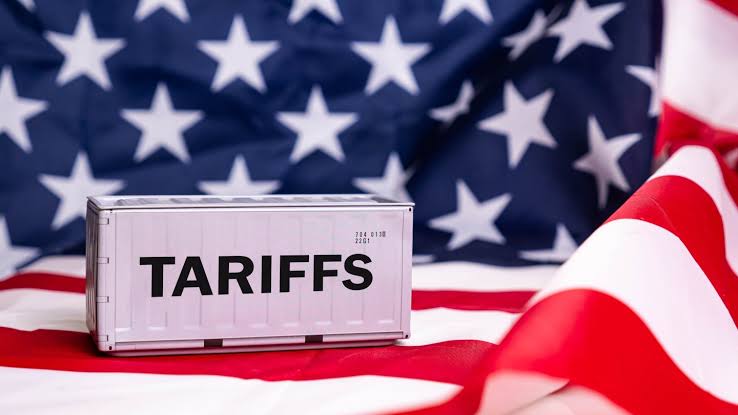Business
South Africa’s Digital Future Under Siege: Why Trump’s 30% Tariff Is More Than Just Trade

It’s official. As of August 1, all South African goods entering the United States will be slapped with a 30% tariff. And if your business touches anything BRICS-related? Add another 10%.
While this might sound like your average trade skirmish, this one cuts deep, especially for South Africa’s tech sector. The timing couldn’t be worse. Our digital economy, once touted as the country’s best bet for inclusive growth, now stands on fragile ground.
Not Just Steel and Citrus: The Tariff That Hits the Cloud
When US President Donald Trump issued a formal letter to President Cyril Ramaphosa on July 7, citing “persistent trade deficits” and “non-tariff barriers,” the global media jumped on the usual narrative: this was about agricultural exports, maybe car parts.
But it’s not. This tariff punches straight through the heart of South Africa’s tech ecosystem, one built on razor-thin margins, cloud infrastructure, and contracts denominated in dollars.
Here’s the catch: South African tech products don’t arrive in crates—they arrive in code.
Software-as-a-service, fintech apps, call centre support, cloud integrations, and AI-powered analytics—all exported digitally, all now 30% more expensive for American partners.
That’s enough to price South African service providers out of contracts overnight, especially small and medium firms that rely on affordability and seamless integration with US platforms like AWS, Google Cloud, and Microsoft Azure.
Startups Are Already Panicking
For startups in Joburg, Cape Town, Durban or Pretoria, many of whom pitch to US-based accelerators, raise US venture capital, or contract with American corporations, this is an existential moment.
A 30% margin cut is not a rounding error. It’s the difference between profitability and collapse. Deals are being reconsidered. Contracts quietly paused. Founders are having urgent Zoom calls with their US investors.
“Can your client still afford you?”
“Should you open a Delaware entity?”
“Do you move your hosting to the US and pretend you’re not South African?”
It’s Not a Trade Dispute, It’s a Digital Ultimatum
Here’s what’s truly at stake: control of the digital future. Washington’s letter wasn’t just a policy memo, it was a message.
“You want to build your own BRICS-led cloud infrastructure?
You want to process payments without SWIFT or Visa?
You want to store data locally and govern it independently?
Fine. But it’ll cost you.”
South Africa’s alignment with BRICS has always included digital multipolarity, investing in local data centres, regional AI research, and independent financial rails. But in Washington’s eyes, sovereignty looks a lot like defiance.
Hence, the extra 10% penalty for BRICS-aligned digital actors. Call it the “Don’t build your own internet” clause.
Who Gets Hurt First?
-
Digital SMMEs and software exporters
-
BPO and call centre operators
-
Fintech, edtech, and health tech startups
-
Independent ISPs and cloud service resellers
-
App developers using US marketplaces
-
Universities and researchers relying on US tools and hosting
Many will be forced to either absorb the costs or shift operations offshore—ironically, incentivised by the US’s “zero tariff” offer for relocating firms. That’s not free trade. That’s economic poaching.
Can We Live Without the US Digital Ecosystem? Not Yet, But We Must Try
Let’s be honest: South Africa is deeply dependent on the US tech stack. Our cloud hosting, our payment APIs, our mobile app stores, they’re all American. But this moment should jolt us into action.
Five Things South Africa Should Do, Starting Now
-
Declare digital infrastructure a strategic asset
Prioritise data sovereignty by localising cloud services, app ecosystems, and payment gateways. -
Launch a Digital Tariff Relief Programme
Provide emergency support to affected SMMEs through rebates, credit guarantees, and public procurement preferences. -
Double down on BRICS tech infrastructure
Fast-track investments in alternative cloud networks, fibre links, and shared digital resources. -
Build Africa-Asia tech corridors
Position South Africa as the continental hub for digital trade by forging bilateral pacts with markets in India, Indonesia, Kenya, Egypt, and Brazil. -
Mobilise big business and universities to #BuyLocalTech
Create demand for local solutions, especially in enterprise software, learning platforms, and digital health.
Control the Code, Control the Future
The 30% tariff is not just a policy, it’s a provocation. It asks: will South Africa bend under pressure or build under fire?
Because this isn’t just about trade. It’s about who controls the platforms we build on, the data we produce, and the rules we live by online.
The future belongs to nations that own their cables, clouds, code and courage.
The time to build a digitally sovereign South Africa is now.
{Source: IOL}
Follow Joburg ETC on Facebook, Twitter , TikTok and Instagram
For more News in Johannesburg, visit joburgetc.com


























